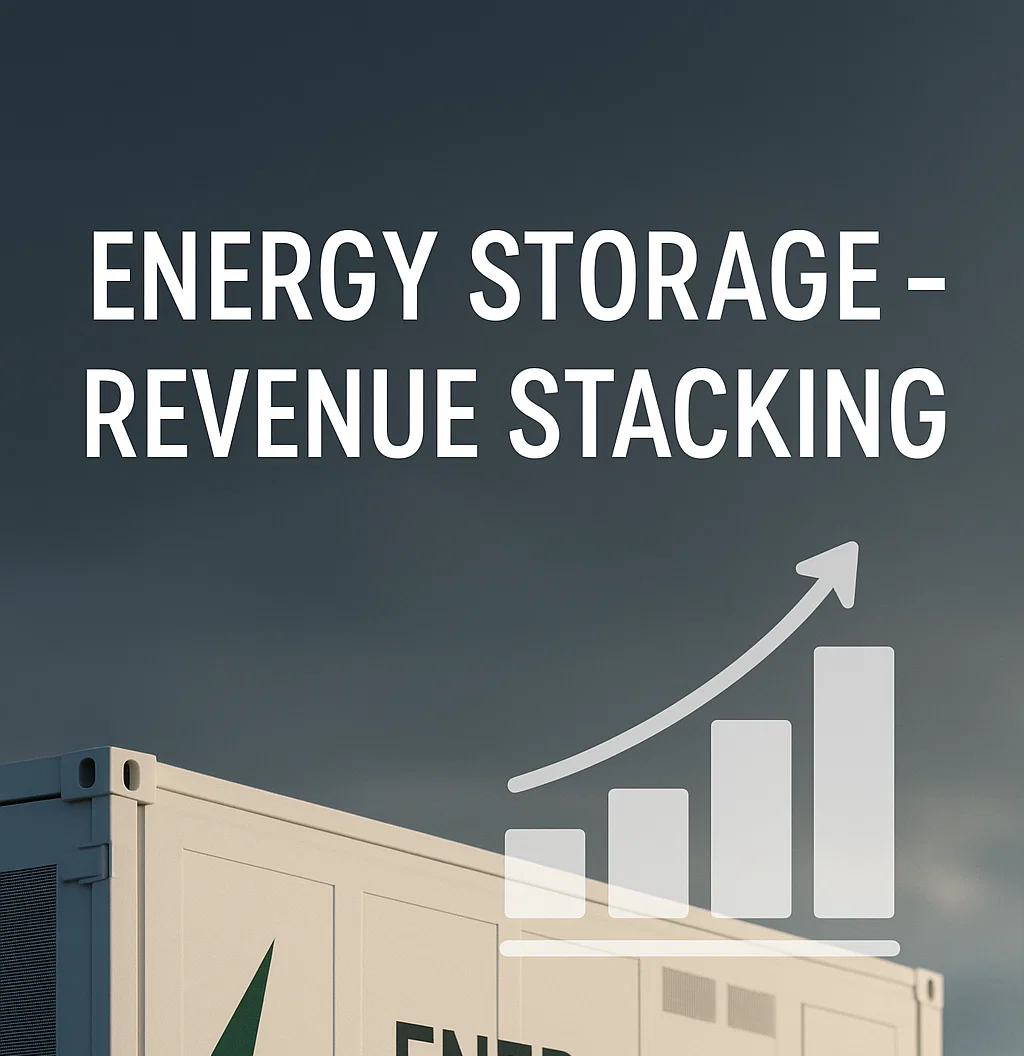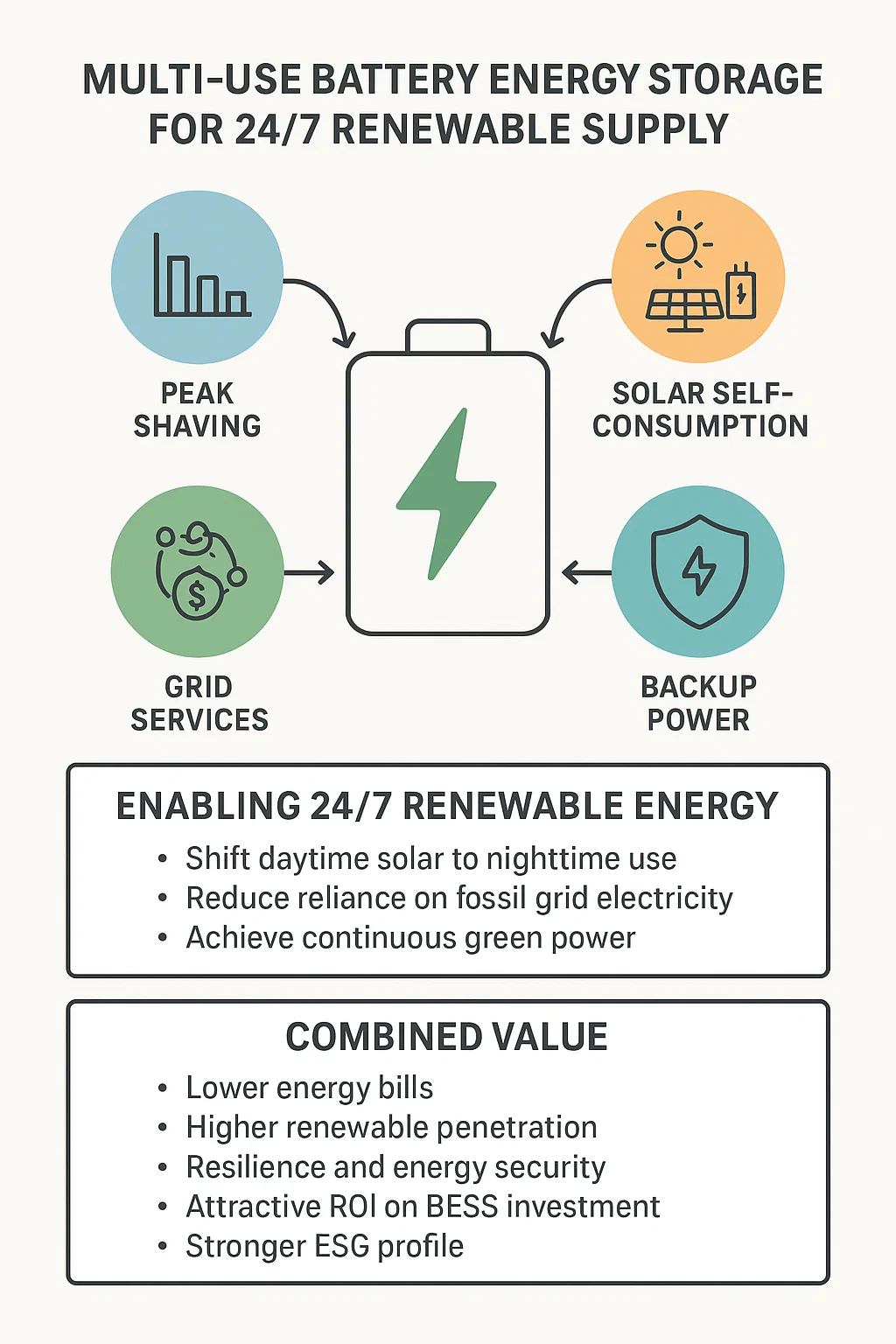
Insight - Energy Storage – Revenue Stacking

Maximizing Value with Battery Energy Storage Systems (BESS) for Corporate Renewable Energy Goals
Energy storage is becoming increasingly popular not only as a solution to solar energy’s intrinsic intermittency issue, but also as a key enabler to improve renewable energy penetration at corporate customer sites. As companies strive for net zero and decarbonization targets, Battery Energy Storage Systems (BESS) have emerged as a strategic asset to support these ambitions.
While a single application — such as peak shaving or backup power — might not be sufficient to justify the BESS investment, it is possible to combine multiple applications, performed by the same unit, with each generating a specific revenue stream or cost saving for the corporate customer. This multi-use BESS approach allows companies to unlock greater value and achieve faster return on investment (ROI).
Applications that drive value for businesses
- Solar self-consumption: Store surplus solar PV energy produced during the day and use it in the evening or during peak tariff periods.
- Peak shaving / demand charge management: Reduce costly demand spikes and lower contracted capacity requirements.
- Backup power / energy security: Ensure business continuity during grid outages or unstable supply conditions.
- Grid services / ancillary services: In certain markets, monetize battery flexibility by participating in frequency regulation or capacity markets.

By combining these applications, businesses can:
✅ Optimize onsite energy management
✅ Increase renewable energy share (essential for RE100 and science-based targets)
✅ Reduce dependency on fossil grid electricity
✅ Enhance resilience and improve their sustainability profile
Towards 24/7 renewable energy
Beyond savings, BESS technology is a key enabler of 24/7 clean energy — allowing corporates to shift daytime solar production to nighttime use, and truly match their consumption with renewable supply. This helps meet evolving stakeholder expectations and strengthens ESG performance.
Why energy storage is a game changer for corporates
As the cost of solar plus battery systems continues to fall, more companies are realizing that combining distributed solar energy with advanced battery storage can deliver clean energy at a cost competitive with — or even cheaper than — grid electricity, including during night hours. This is especially true in regions with high electricity tariffs or unstable grid supply, such as parts of Asia Pacific, Europe, and the United States.

